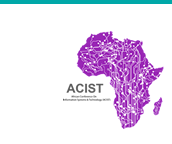Location
Malawi University of Science & Technology, Malawi
Start Date
25-8-2022 4:55 PM
End Date
25-8-2022 5:20 PM
Description
mHealth interventions have the potential to address the inequalities in accessing health information. In maternal healthcare, mHealth interventions provide information to pregnant women on how they can stay healthy during pregnancy, as well as on the danger signs in pregnancy that can contribute to maternal mortality. In this study we posit that extrinsic motivation could promote trialability of mHealth interventions. We employed qualitative research methods to investigate extrinsic factors that motivate maternal healthcare clients in rural Malawi to use mHealth interventions. Self-determination theory was used as the theoretical lens for the study. Data was collected using secondary data sources and semi-structured interviews with maternal clients who used the mHealth intervention. The study found that maternal healthcare clients were extrinsically motivated by incentives and the ability of the technology to suppress social-cultural norms. The study informs mHealth implementers on what they may focus on to bring in beneficiaries to try the intervention which eventually could lead to the adoption and use of interventions.
Included in
Extrinsic Motivation to Use mHealth Interventions in Maternal Healthcare in Rural Malawi
Malawi University of Science & Technology, Malawi
mHealth interventions have the potential to address the inequalities in accessing health information. In maternal healthcare, mHealth interventions provide information to pregnant women on how they can stay healthy during pregnancy, as well as on the danger signs in pregnancy that can contribute to maternal mortality. In this study we posit that extrinsic motivation could promote trialability of mHealth interventions. We employed qualitative research methods to investigate extrinsic factors that motivate maternal healthcare clients in rural Malawi to use mHealth interventions. Self-determination theory was used as the theoretical lens for the study. Data was collected using secondary data sources and semi-structured interviews with maternal clients who used the mHealth intervention. The study found that maternal healthcare clients were extrinsically motivated by incentives and the ability of the technology to suppress social-cultural norms. The study informs mHealth implementers on what they may focus on to bring in beneficiaries to try the intervention which eventually could lead to the adoption and use of interventions.



